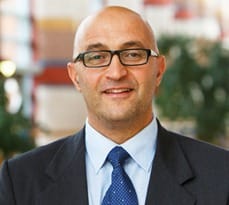The Circular Economy Centre at Cambridge Judge Business School is part of a consortium at the University of Cambridge that was awarded more than £1 million funding by the UK Research and Innovation agency to respond to challenges posed by plastic waste.

The consortium, called the Centre for Circular Economy Approaches to Eliminate Plastic Waste, also includes these University of Cambridge departments: Chemistry, Zoology, Physics, Engineering, Materials, Chemical Engineering, and Asian and Middle Eastern Studies.
The 18-month award to the consortium will help fund work on innovative alternatives to plastics and novel technologies for the utilisation of waste plastics, as well as a series of workshops and a forum. The consortium was one of eight projects awarded funding, announced by the UK Science Minister, Chris Skidmore.
“We have all seen the devastating effects that plastics waste has on our environment, threatening the biodiversity of our oceans and introducing micro-plastics into the food chain,” the minister said.

The consortium will also look at:
- Sustainable feedstocks and materials as
cleaner and more recyclable plastic alternatives. - Models for understanding plastic flows through the UK economy, society
and environment to improve the recovery of plastics. - Service design methodologies to influence business behaviour.
- Innovative recycling approaches to recover the high energy content of waste plastics by producing electricity with microbes and chemical fuels using sunlight.
“At the Circular Economy Centre, we are very excited to be part of a consortium which leverages expertise across the University of Cambridge to tackle this important and relevant topic,” said Dr Khaled Soufani, Director of the Circular Economy Centre at Cambridge Judge.

